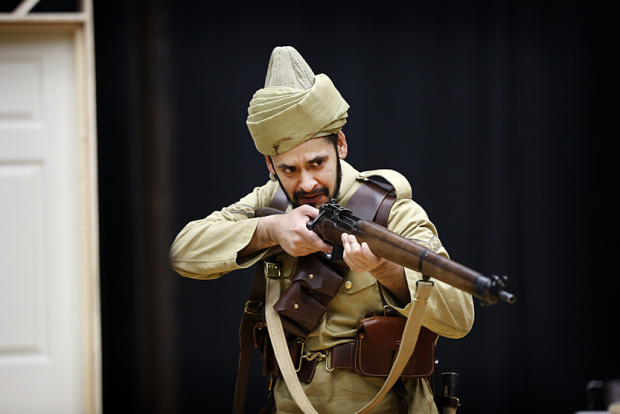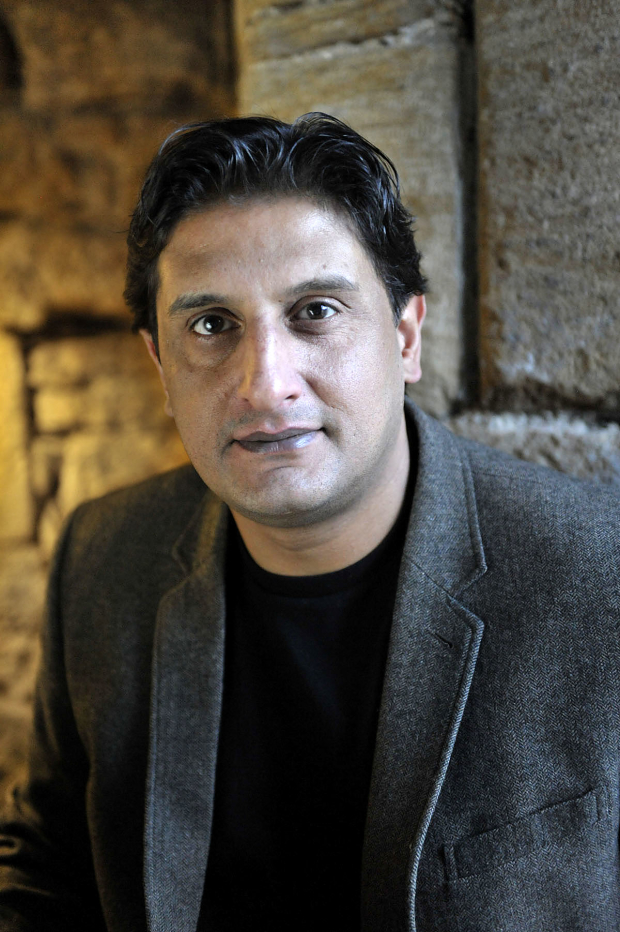Ishy Din: 'Khuddadad Khan's is an amazing story of bravery and selflessness'
Playwright Ishy Din on the first ever Indian soldier to receive the Victoria Cross, the man who inspired his new play ”Wipers”

When I was first approached by Suba Das, an associate producer at Leicester’s Curve Theatre, about writing a play looking at Indian soldiers that fought in the Great War, I had this vague knowledge of the contribution of Indian soldiers and I was more aware of WWII, than WWI. I knew that soldiers had fought, that heavy losses had been suffered in Italy, (it turned out that that was World War II) and that there were untold war graves in Belgium. But again this was the vaguest of knowledge and certainly not enough to start writing a play.
When I set about researching Indian soldiers and WWI, one of the first people that I came across was Khuddadad Khan, a 26 year-old from Chakwal in North-West Punjab, who was the recipient of the first ever Victoria Cross (Britain’s highest award for valour) given to an Indian soldier. An amazing story of bravery and selflessness with far reaching consequences.
Khuddadad was part of the First Indian Expeditionary Force, over 70,000 men, which had arrived in France only months earlier. In total, over a million men from the Indian sub-continent fought in the Great War and there were numerous stories of incredible bravery and sacrifice, nine were awarded a Victoria Cross.
But Khuddadad’s story seemed to resonate: he was from a part of India, now Pakistan that wasn’t far from where my parents were from, he was a Muslim and I felt he could be an antidote to the current rhetoric doing the rounds both sides of the Atlantic.
Khuddadad was a machine gunner who fought for 10 hours as one by one his comrades around him were killed, but he kept on fighting, even when injured in both the arm and the leg. In fact, he managed to fight and hold the Germans at bay long enough for French reinforcements to arrive thus preventing the German forces from sweeping down onto the ports of Boulogne and Nieuwpoort and cutting off a vital supply route to British soldiers. It could be argued that this changed the course of the war. When his post was overrun he was so badly injured that the Germans thought him dead and left him, he later managed to crawl back behind Allied lines and was shipped out to a hospital in Brighton.
This was a story worth telling.
But things are never quite that simple, within a couple of months I travelled to Pakistan to attend a wedding, I thought it would also give me an opportunity to go to Khuddadad’s village, perhaps talk to people that knew him, experience the environment that he came from. The family of my protagonist were extremely welcoming and generous both with their time and their memories, but the more I learnt, the more I realised that it would be difficult to put Khuddadad at the centre of my story. Here was a man who’s statue adorned the front lawn of the Military Museum in Rawalpindi, a man whose funeral in 1972 was attended by the top brass of the Pakistani Army, and yet for many others that attended the funeral, he was a humble farmer that they hadn’t even known was in the army let alone such a highly decorated soldier. It turned out that he rarely talked about the war and never mentioned his own exploits.

How could I put this man at centre stage and then start to twist and turn him for my own dramatic purposes, knowing on the one hand how revered he was but also having real sense of the humble and humane nature of him.
It was after my visit to Pakistan that I started to think again of the shape my story would take and the characters that would inhabit it and although Khuddadad isn’t on stage at any time during Wipers, his presence is strongly felt and seeded throughout the piece.
I hope I have done him justice but I also hope that I have done a small bit towards a greater understanding of the contribution made by forces from all over the Empire and rather than look at our differences we should look at our shared humanity.
By Ishy Din
Wipers runs at the Leicester Curve from 14 to 23 April, after which it transfers to Watford Palace Theatre and Belgrade Theatre, Coventry.












